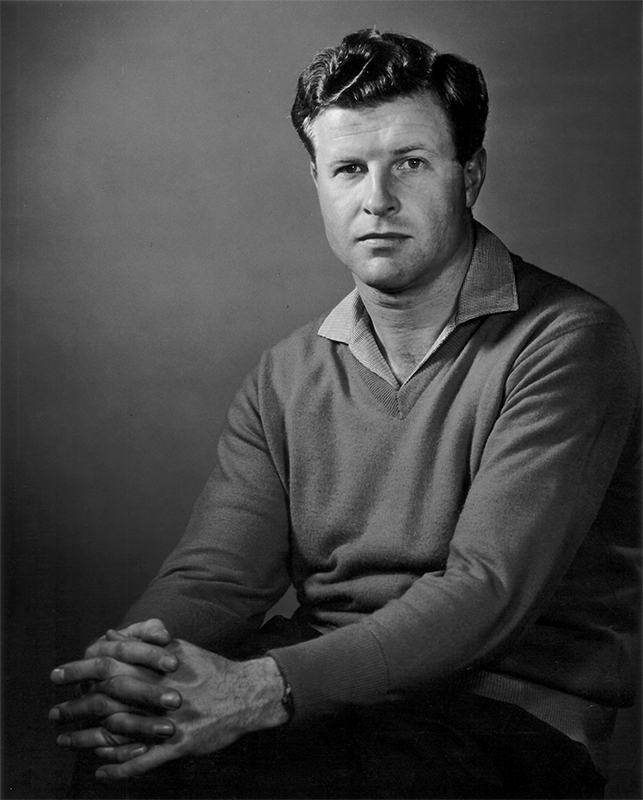
ジョン・ブラッキング
John Anthony Randoll Blacking (22 October
1928 – 24 January 1990)

☆ ジョン・アンソニー・ランドール・ブラッキング(1928年10月22日 - 1990年1月24日)はイギリスの民族音楽学者、社会人類学者。
| John Anthony Randoll Blacking (22 October 1928 – 24 January 1990) was a British ethnomusicologist and social anthropologist. Early life and education John Blacking was born in Guildford, Surrey, and was educated at Salisbury Cathedral School and at King's College, Cambridge, where he was a pupil of the illustrious anthropologist, Meyer Fortes. After serving with the British Army in Malaysia, he was employed by Hugh Tracey in the International Library of African Music (ILAM) and further studied music and culture of the Venda people in South Africa in the 1950s and 1960s. In 1965 he was awarded a D.Litt. from the University of the Witwatersrand for his work on Venda children's songs. |
ジョン・アンソニー・ランドール・ブラッキング(1928年10月22日 - 1990年1月24日)はイギリスの民族音楽学者、社会人類学者。 生い立ちと教育 サリー州ギルフォードで生まれ、ソールズベリー大聖堂付属学校とケンブリッジのキングス・カレッジで教育を受ける。マレーシアでイギリス軍に従軍した後、 ヒュー・トレーシーに雇われ、国際アフリカ音楽図書館(ILAM)で働き、さらに1950年代から1960年代にかけて南アフリカのヴェンダ族の音楽と文 化を研究した。1965年、ヴェンダの子供の歌に関する研究でウィットウォーターズランド大学からD.Litt.を授与された。 |
| Career In 1965 he was made professor and Head of the Department of Social Anthropology.[1] In the field of ethnomusicology, Blacking is known for his early and energetic advocacy of an anthropological perspective in the study of music. He spent most of his later academic career at Queen's University Belfast, in Northern Ireland, where he was a professor of social anthropology from 1970 until his death in 1990. Many of his ideas about the social impact of music can be found in his 1973 book How Musical is Man?. In this book, Blacking called for a study of music as "Humanly Organized Sound", arguing that "it is the activities of Man the Music Maker that are of more interest and consequence to humanity than the particular musical achievements of Western man",[2] and that "no musical style has 'its own terms': its terms are the terms of its society and culture".[3] His other books include Venda Children's Songs (1967), one of the first ethnomusicological works to focus directly on the interpenetration of music and culture, Anthropology of the Body (London: Academic Press, 1977) and A Commonsense View of All Music: reflections on Percy Grainger's contribution to ethnomusicology and music education (Cambridge: Cambridge University Press, 1989). The Callaway Centre in the University of Western Australia holds an archive of his field notes and tapes, the John Blacking Collection. He wrote and presented a series, Dancing, for Ulster Television. John Blacking House was named in Belfast, in honour of his involvement with the Open Door Housing Association. He died in Belfast at age 62 on 24 January 1990. |
経歴 1965年に社会人類学部長兼教授となる[1]。 民族音楽学の分野では、音楽研究における人類学的視点を早くから精力的に提唱したことで知られる。 1970年から1990年に亡くなるまで、北アイルランドのクイーンズ大学ベルファスト校で社会人類学の教授を務めた。音楽の社会的影響に関する彼の考え の多くは、1973年に出版された著書『How Musical is Man? この本の中で、ブラッキングは「人間的に組織された音」としての音楽の研究を呼びかけ、「人類にとってより興味深く重要なのは、西洋人の特定の音楽的業績 よりも、音楽制作者である人間の活動である」[2]と主張し、「どのような音楽スタイルも『独自の条件』を持っていない:その条件はその社会と文化の条件 である」と述べた[3]。 その他の著書に、音楽と文化の相互浸透に直接焦点を当てた最初の民族音楽学的著作のひとつである『Venda Children's Songs』(1967年)、『Anthropology of the Body』(ロンドン:Academic Press、1977年)、『A Commonsense View of All Music: Reflections on Percy Grainger's Contribution to ethnomusicology and music education』(ケンブリッジ:Cambridge University Press、1989年)などがある。 西オーストラリア大学のキャラウェイ・センターには、彼のフィールドノートとテープのアーカイブ、ジョン・ブラッキング・コレクションが所蔵されている。 アルスター・テレビジョンでは、『ダンシング』シリーズの脚本とプレゼンターを務めた。ジョン・ブラッキング・ハウスは、彼のオープンドア住宅協会との関 わりを称えてベルファストに命名された。 1990年1月24日、62歳でベルファストにて死去。 |
| Selected publications Blacking, John. 1954. Some notes on a theory of African rhythm advanced by Erich von Hornbostel. African Music: Journal of the International Library of African Music, Roodepoort, International Library of African Music, v. 1, n. 2, p. 12-20. ISSN 0065-4019. Available at: http://journal.ru.ac.za/index.php/africanmusic/article/view/251.[4] Blacking, John. 1954. Eight flute tunes from Butembo, east Belgian Congo: an analysis in two parts, musical and physical: Part 1. African Music: Journal of the International Library of African Music, Roodepoort, International Library of African Music, v. 1, n. 2, p. 24-52. ISSN 0065-4019. Available at: http://journal.ru.ac.za/index.php/africanmusic/article/view/253. |
|
| Blacking, J. How Musical is Man? University of Washington Press, Seattle, U.S.A, 1973. 116p. ISBN 0-295-95338-1 Blacking, John Anthony Randoll (1928–1990), social anthropologist and ethnomusicologist, in Oxford Dictionary of National Biography, Oxford University Press, 2004 Cross, Ian, (June 2007). Book review of The Musical Human: Rethinking John Blacking's Ethnomusicology in the Twenty-first Century (Aldershot, Ashgate, 2006. ISBN 0-7546-5138-X ISBN 978-0754651383) in Music Perception 24:507-510 ISSN 0730-7829 https://en.wikipedia.org/wiki/John_Blacking |
|
 Music,
culture, & experience : selected papers of John Blacking /
edited and with an introduction by Reginald Byron ; with a foreward by
Bruno Nettl, University of Chicago Press , 1995 . - (Chicago studies in
ethnomusicology) Music,
culture, & experience : selected papers of John Blacking /
edited and with an introduction by Reginald Byron ; with a foreward by
Bruno Nettl, University of Chicago Press , 1995 . - (Chicago studies in
ethnomusicology)One of the most important ethnomusicologists of the century, John Blacking is known for his interest in the relationship of music to biology, psychology, dance and politics. He attempted to document the ways in which music-making expresses the human condition, how it transcends social divisions and how it can be used to improve the quality of human life. This volume brings together eight of Blacking's most important theoretical papers which reveal his theoretical themes such as the innateness of musical ability, the properties of music as a symbolic or quasi-linguistic system, the complex relation between music and social institutions and the relation between scientific musical analysis and cultural understanding. Foreword Bruno Nettl Acknowledgments The Ethnomusicology of John Blacking 1: Expressing Human Experience through Music 2: The Problem of Musical Description 3: The Music of Venda Girls' Initiation 4: Music and the Historical Process in Vendaland 5: The Study of Musical Change 6: Reflections on the Effectiveness of Symbols 7: The Music of Politics 8: Music, Culture, and Experience A Note on Pronunciation Works by John Blacking References Index. https://ci.nii.ac.jp/ncid/BA25786453 |
 没後編集論集『音楽、文化、経験:ジョン・ブラッキングの論文集』 没後編集論集『音楽、文化、経験:ジョン・ブラッキングの論文集』今世紀最も重要な民族音楽学者の一人であるジョン・ブラッキングは、音楽と生物学、心理学、ダンス、政治との関係に関心を寄せたことで知られる。彼は、音 楽制作が人間の状態を表現する方法、社会的分裂を超越する方法、そして人間の生活の質を向上させるためにどのように利用できるかを記録しようとした。本書 は、ブラッキングの最も重要な理論的論文8編をまとめたもので、音楽能力の生得性、象徴的あるいは準言語的システムとしての音楽の特性、音楽と社会制度と の複雑な関係、科学的な音楽分析と文化的理解との関係など、彼の理論的テーマを明らかにしている。 序文 ブルーノ・ネトル 謝辞 ジョン・ブラッキングの民族音楽学 1:音楽による人間経験の表現 2:音楽記述の問題 3:ヴェンダ族の少女たちの入門の音楽 4:ヴェンダランドにおける音楽と歴史過程 5:音楽的変化の研究 6.象徴の効果についての考察 7: 政治の音楽 8: 音楽、文化、経験 発音についてのノート ジョン・ブラッキング著作集 参考文献 索引 |
| ・言語の普遍理論(たとえば深層構造論)はありえても、音楽のそれはない——『人間の音楽性』 |
|
| Music is not a language that describes the way society seems to be, but
a metaphorical expression of feelings associated with the way society
really is. It is a reflection of and response to social forces, and
particularly to the consequences of the division of labor in society.
p.104 (1973) |
音楽は、社会のあり方を描写する言語ではなく、社会のあり方に関連する感情を比喩的に表現したものである。それは社会的な力の反映であり、それに対する反応であり、特に社会における分業の結果に対する反応である。 |
| ジョン・ブラッキング『人間の音楽性』 |
|
| 0. はじめに |
|
| 1. 人間によって組織づけられた音響 |
|
| 2. 社会と文化における音楽 |
|
| 3. 音楽の中の文化と社会 |
|
| 4. 音響によって組織づけられた人間性 |
|
| 文献 |
|
リ ンク
文 献
そ の他の情報
Copyleft, CC, Mitzub'ixi Quq Chi'j, 1996-2099
☆
 ☆
☆